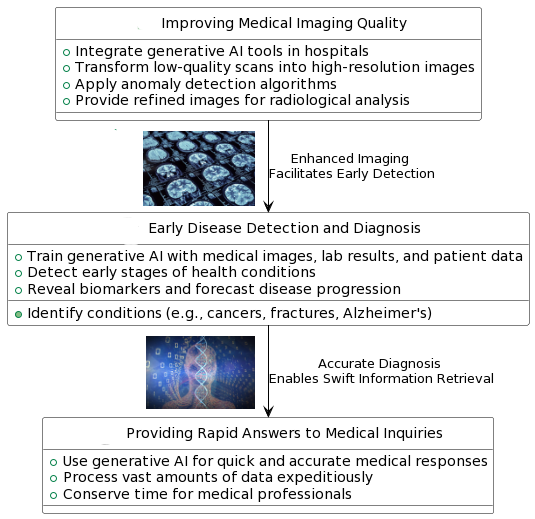The Impacts and Challenges of Generative Artificial Intelligence in Medical Education, Clinical Diagnostics, Administrative Efficiency, and Data Generation
Jatin Pal Singh
Abstract
The objective of this study is to investigate the role of generative artificial intelligence (AI) in improving healthcare, focusing on four key areas: medical education, clinical diagnosis, administrative efficiency, and the creation of synthetic medical data. Generative AI introduces a significant shift from traditional training methods. It creates realistic, risk-free simulation environments for training purposes, presenting a wide array of patient scenarios. This approach not only enriches the learning experience but also presents challenges such as ensuring the accuracy and realism of these simulations and integrating them into current educational structures. In clinical diagnostics, generative AI enhances the quality of medical imaging, aids in early disease detection, and offers quick responses to medical inquiries. Despite these advancements, there are challenges in maintaining data quality to prevent biases in diagnoses and ensuring healthcare professionals can understand and trust the AI's diagnostic processes. Administrative tasks in healthcare are streamlined through generative AI, reducing the workload on healthcare professionals and potentially cutting down costs. This technology automates tasks like data extraction, consultation transcription, and report generation. Ensuring the security and privacy of patient data and integrating AI into existing healthcare systems remain significant challenges. The creation of synthetic medical data addresses the lack of available health data, especially for rare diseases. This data is free from privacy restrictions and enhances medical research. Nevertheless, the authenticity and representativeness of this synthetic data are challenging, along with regulatory and ethical considerations in its use. This research highlights both the opportunities and the obstacles presented by generative AI in improving medical education, clinical diagnosis, healthcare administration, and medical research.
Keywords: Clinical Diagnostics, Generative Artificial Intelligence, Healthcare Administration, Healthcare Technology Integration, Medical Education Simulations, Synthetic Medical Data


